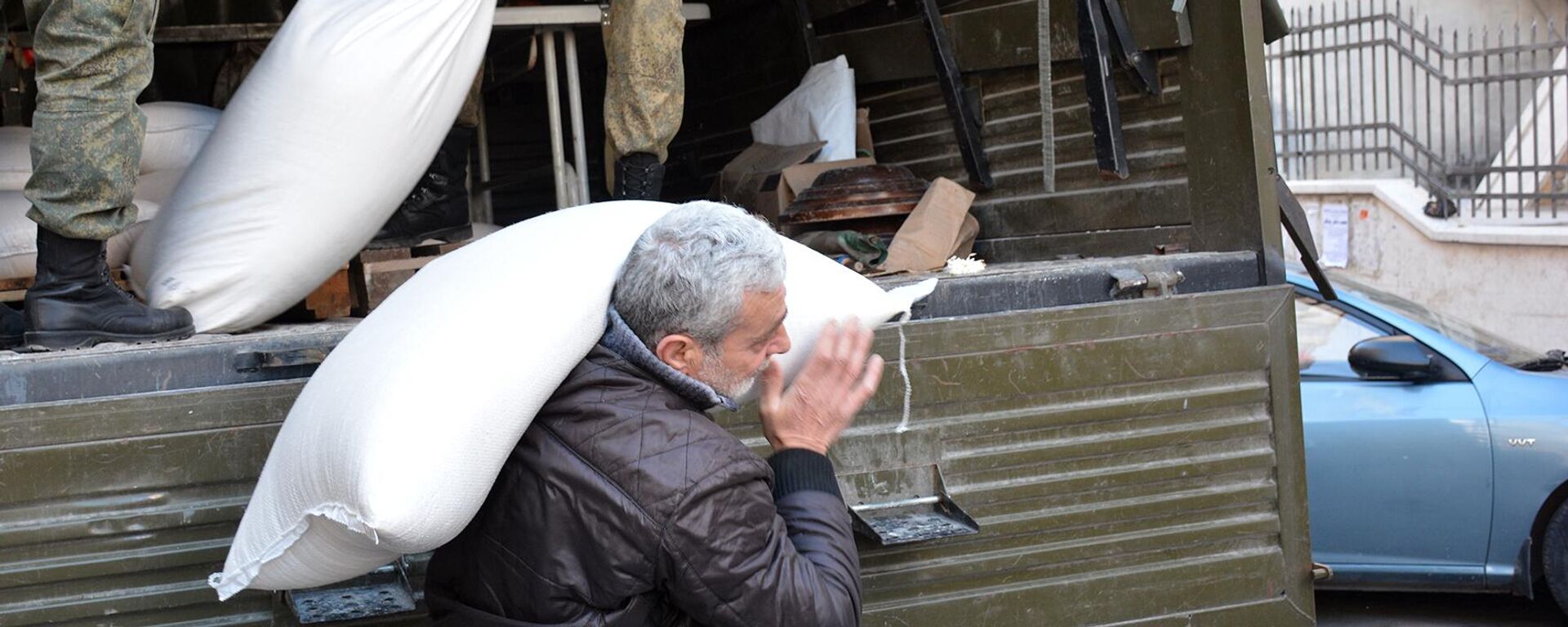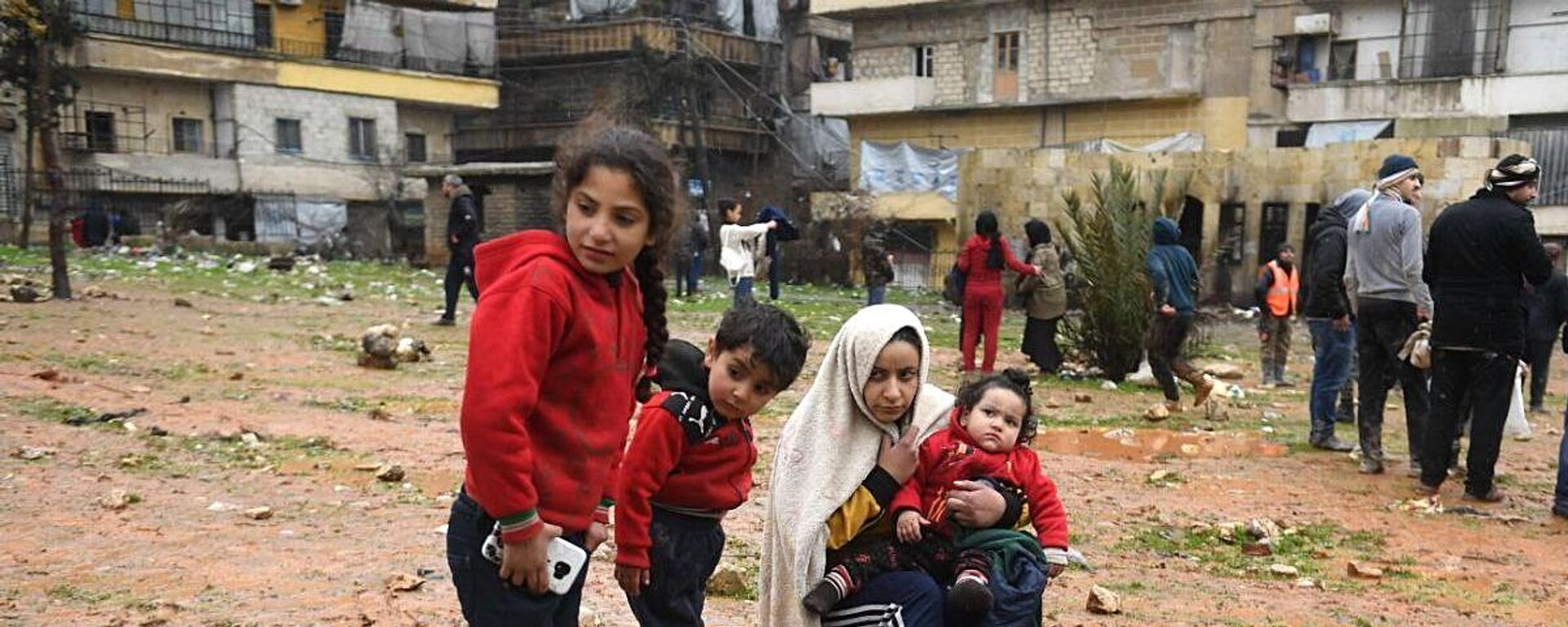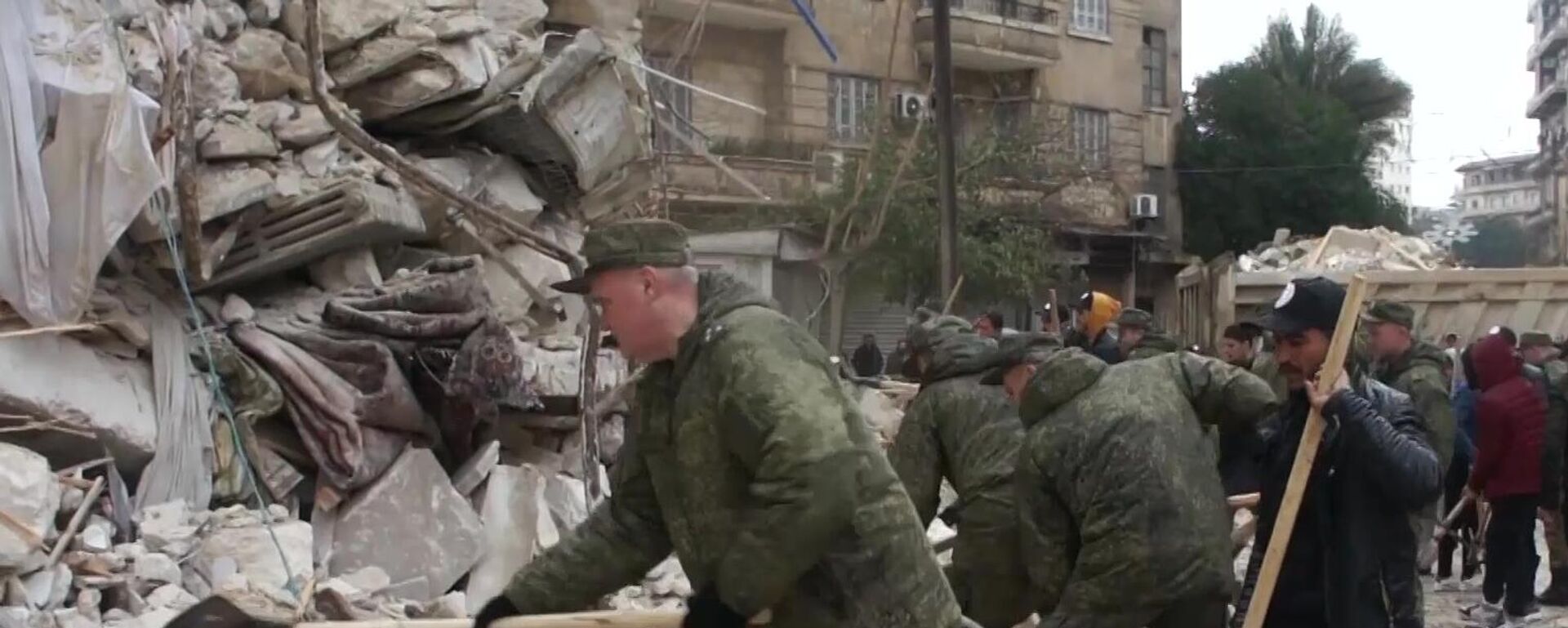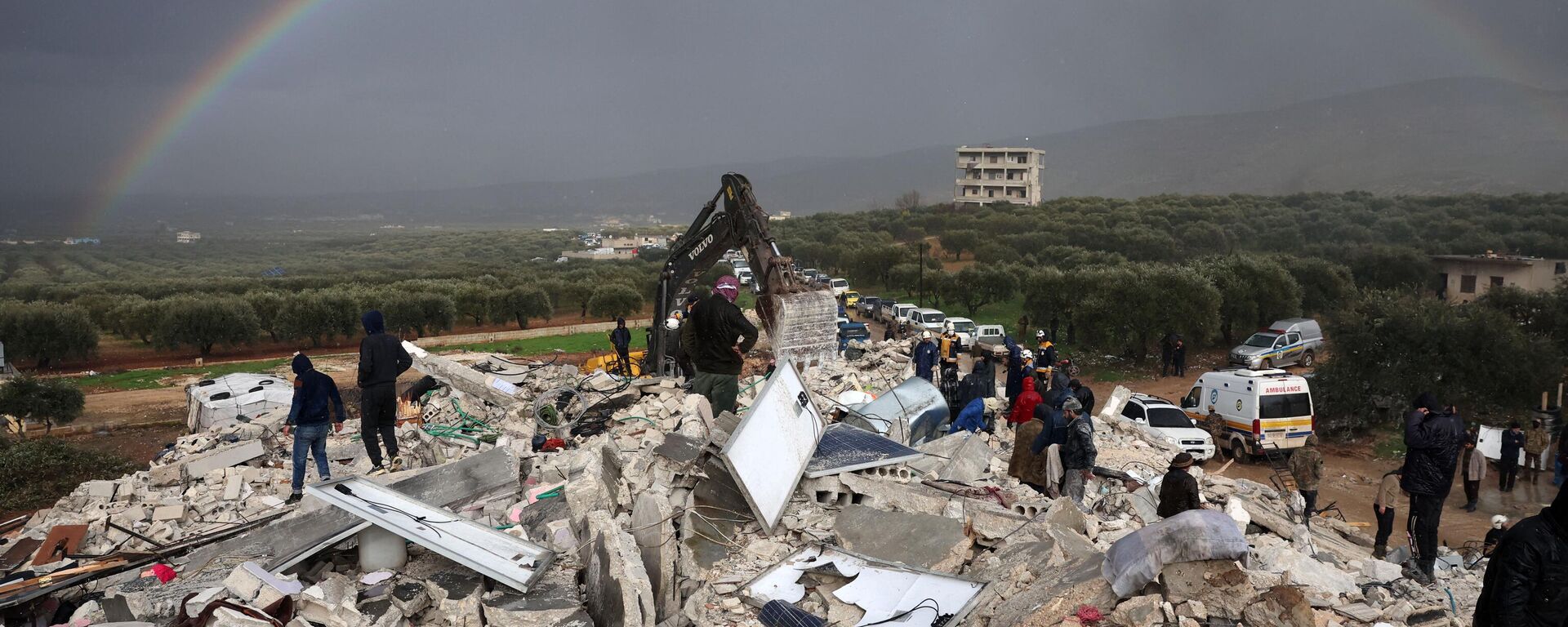A Story of Pain: Earthquake Survivors in Syria's Latakia Recall Horror
16:05 GMT 13.02.2023 (Updated: 16:06 GMT 13.02.2023)
© Sputnik
Subscribe
Syrians left homeless following a powerful earthquake on February 6 are now forced to sleep in temporary shelters. The city of Latakia, which has the highest number of quake-affected people in the country, is no exception. Speaking with Sputnik, some of them recalled the terrible night the 7.7-magnitude earthquake occurred.
A little blue-eyed girl, Sidra Shaouiki, was practically unharmed in the earthquake, which has already claimed the lives of nearly 40,000 people in both Turkiye and Syria. But she remembers those minutes of violent shaking as the worst thing she had ever experienced in her already difficult childhood.
"My brothers and I were asleep when the first earthquake struck. We woke up to the ground shaking and swaying. Everything around us was shaking, it was very frightening and incomprehensible. We jumped out into the street barefoot: thank God the whole family managed to get out before the house collapsed. Thank God, everyone is alive and in one piece. We escaped by a miracle. I will never forget that day. I still have nightmares about the earthquake and the screams of my parents and brothers," she recalled.
But not everyone in the temporary shelter made it out of the earthquake unscathed. Abdel-Kader Soufan, for example, injured his arm while rescuing his family:
"I was in the kitchen when the earthquake happened. Just as we were getting ready to go out, the ceiling started to collapse, and part of it fell right onto my arm. But I was lucky: at least I wasn't buried under the rubble. My family and I managed to get out before the house collapsed. The children were unharmed, and that was the most important thing. At night, when the house had already collapsed, my neighbors and I were left without a roof over our heads, in the rain. The night was cold enough. The houses on our street collapsed one by one, right before our eyes. We can only thank God that we survived and that we now have a place to eat and sleep," the man said.
Mustafa Ahmad Jabbara, for his part, has also been left without a home. He hopes that the international blockade of Syria will be lifted, otherwise, the Syrian people will simply die in a humanitarian disaster without medicine and supplies.
"Yes, our nation is once again in the midst of a terrible disaster. Most people feel the pain, the fear, the terror. But we see and feel, among other things, the tremendous support that our friends, including the Arab countries and Russia, are giving us. It is such a ray of light: we were not left alone to die under the rubble," he said.
A frightened girl huddled in a corner with tears in her eyes caught everyone's attention. Her name is Nur and she is eight years old. She ended up in the shelter alone, without her family.
"I really want to see my mom and dad and my older brother again. When the house began to shake, my father told me to go outside. Our neighbor's son carried me down the stairs in his arms. When we were downstairs, the house collapsed. I don't remember anything else," the girl said.
Rescue Operations
At the same time, search and rescue efforts to find those still alive under the rubble and recover the bodies of the dead have been underway for a week.
"We still continue to retrieve people from under the rubble alive. So there is hope that we will still find the living," Jalal Dawoud, head of the Civil Defense Service of Syria's Latakia province, told Sputnik.
Where is Support from International Organizations?
There are 65 temporary shelters for earthquake victims in Syria's Latakia province alone. People in need are given shelter, food, and the opportunity to identify themselves in order to obtain temporary documents.
Tayseer Habib, head of the Latakia provincial council, confirmed that a plan has been developed to monitor shelters and provide emergency and humanitarian aid to victims.
"First of all, we help the affected families with children. Often there are only orphaned children among them. We can't always quickly find out if any of their relatives are still alive. We place everyone in equipped facilities, no one stays in shelters with cracked walls," he assured.
In parallel with the search and rescue efforts, buildings are being inspected. Many of the remaining homes may be unsafe to enter due to cracked walls and the risk of collapsing inter-floor structures. An ad-hoc technical inspection committee is assessing the condition of each damaged house.
According to Tayseer Habib, both his province and the entire country are in dire need of help from international organizations. But for some reason, they are in no hurry to provide it.
"We really need international organizations to help us somehow in the second phase of dealing with the consequences of the earthquake. It has already become clear that Syria cannot do it alone. We need help with medicines for hospitals, even the simplest ones, and medical equipment. What's more, we don't have the equipment to remove the rubble and uninhabitable buildings. I am not even talking about helping the families that have been left homeless. But where are they? Why hasn't anything been done in a week?" he wondered.
Sanctions and Healthcare
Another major issue is sanctions and their impact on the humanitarian situation in Syria. The director of the Lattakia Health Directorate, Hawazen Makhlouf, stressed that the sanctions imposed on Syria have greatly affected the ability to respond to emergencies.
"You see, our hospitals simply have no medicine, no medical supplies, no medical equipment. We have nothing to treat people with: and there are thousands and thousands of victims right now. Yes, we have been able to get about 70 percent of the victims in our province to hospitals. And they will be released soon. But we have many children who were left either without their fathers or without both parents and now there is no place for them to live. How and where to discharge them from the hospitals is a painful and urgent question," he explained.






